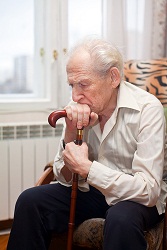How many medical malpractice trials have there been in Washington D.C. this year? Ummm, let’s see, medical malpractice lawsuits are out of control. I know this because I read the Forbes article repeating the “malpractice lawsuits are running amok and medical malpractice lawyers are the problem” mantra. So how many do you guess? 150? 250? The correct answer, according to a report given by the D.C. Superior Court, is six.
The score is 3-3, three malpractice verdicts for the plaintiff and three defense verdicts. It must be that the juries are handing out whopping malpractice verdicts. We know this because we have heard it so many times before. So, back to the guessing game theme for today, how much did the juries award in these three malpractice jury verdicts? $20 million? $40 million? The answer is $366,775.24. But even that number is misleadingly high. The largest verdict – $131,775.45—was taken away by the trial judge. So the total amount of malpractice jury awards in Washington, D.C. in 2009 is $235,000.
Ladies and gentlemen, I present to you, your medical malpractice crisis.
 Maryland Injury Law Center
Maryland Injury Law Center


